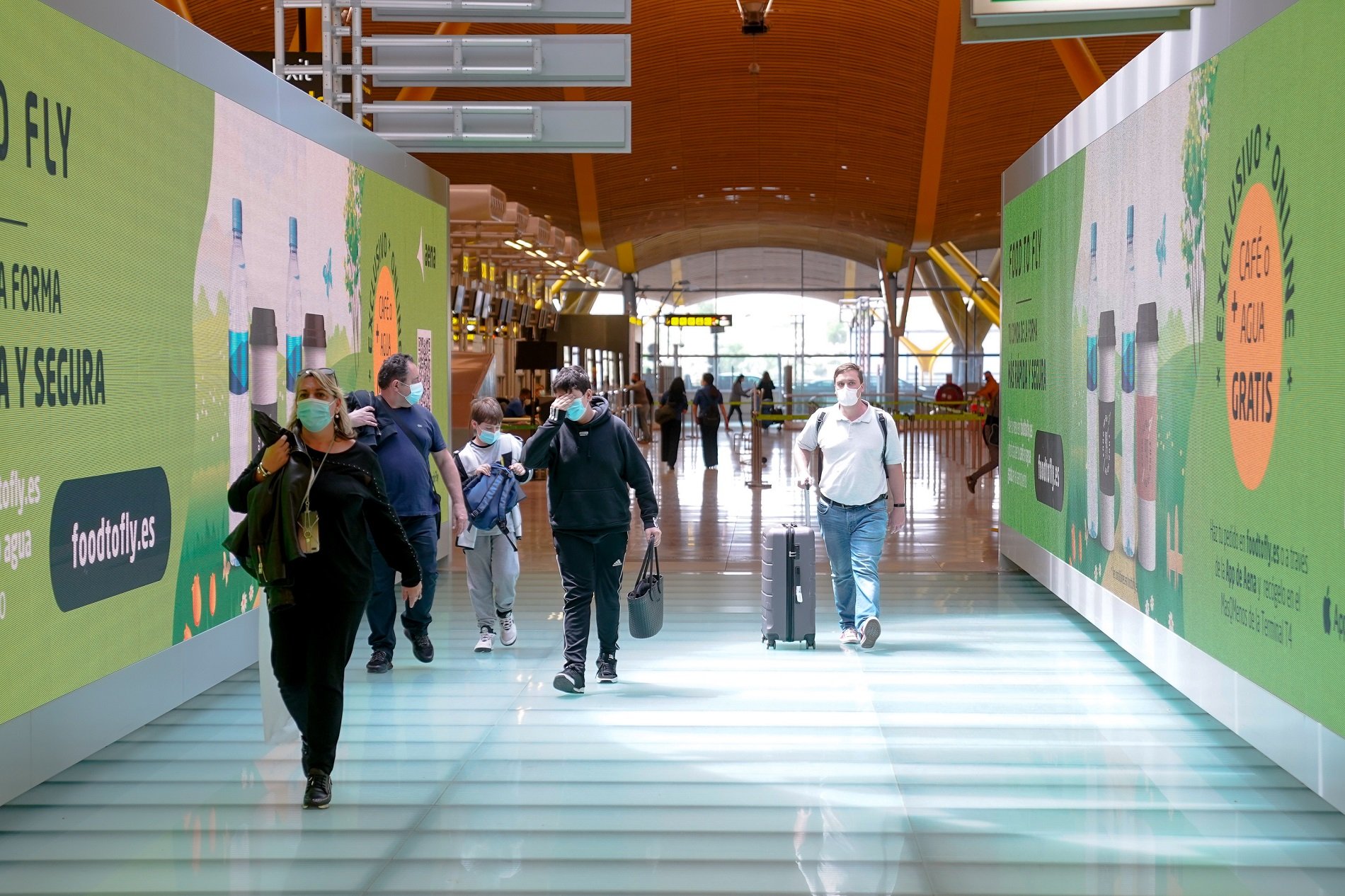The Spanish transport ministry has clarified that face masks will continue to be mandatory on board planes, as well as in other means of public transport such as trains, boats and buses. Where it is not mandatory is at the transport terminus before you board - that is, the airport, the station or the platform - although its use in these places is also recommended. This clarification was made after an ambiguous government statement. This Thursday, the Spanish minister of transport, Raquel Sánchez, incorrectly told the Congress of Deputies that "in the case of air transport, following the evolution of the health emergency caused by Covid-19, the royal decree-law removes the obligation to apply the guidelines linked to the pandemic at airports and establishes that they are recommendations". Sánchez also said, in reference to Spanish airport facilities, that "the obligation to wear a mask, have your temperature taken or maintain social distances at checkpoints is eliminated".
Sánchez then went on, speaking of the benefits of this change when, in fact, no change had occurred, stating that "with this modification we are following in the footsteps of the countries around us and eliminating barriers and, therefore, enhancing the competitiveness of the transport and tourism sectors". Last May, the European Aviation Safety Agency (EASA) and the European Centre for the Prevention and Control of Diseases (ECDC) removed its recommendation for masks to be compulsory at airports and on planes, but the actual decision was left up to the airlines and the countries of operation. Despite this, these bodies did not advocate for the elimination of masks on board planes, but rather, they continue to recommend it for vulnerable travelers, who are advised to use an FPP2, as well as on flights departing from or landing in destinations where mask use is still required on public transport.
Spain's current rules are maintained
After the minister's announcement, her explanation of what it meant for air transport users, sources from the Ministry of Transport came forward and explained that, in fact, mask wearing remains compulsory inside planes, although not at airports, as indicated by current regulations. Thus, masks remains mandatory for both passengers and crew, as well as for train and bus users. According to the Spanish regulations in force, masks must also be worn in the enclosed spaces of ships and boats where social distancing of 1.5 metres cannot be maintained, except in the case of cabins occupied completely by members of the same household bubble.
Just a few days ago, the Spanish health minister, Carolina Darias, spoke about the possibility of eliminating the mask mandate on public transport and assured that "we are at the end of the pandemic, although we [remain] cautious". Darias assured that "if there is a change", her ministry would carry it out "according to what the experts say". She affirmed that masks would "continue to be used in healthcare environments and in care homes, among workers and people who visit relatives, as well as on public transport" because, although as she affirmed, the stage of the pandemic is one in which things are looking up, it is dangerous to let your guard down. "We are leading practically normal lives and masks have been a very important protective barrier element. We have always been led by the experts and it will continue to be so," affirmed the Spanish minister of health.

